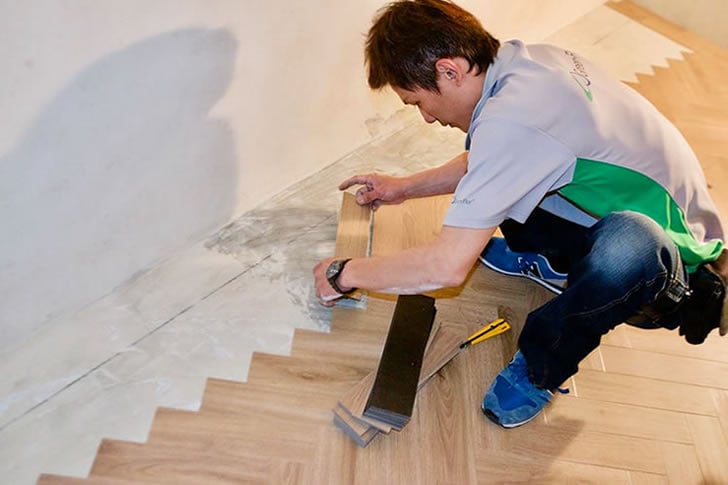When it comes to garage flooring, epoxy is an excellent choice due to its durability, aesthetic appeal, and ease of maintenance. Below, we guide you through the benefits and application process.

Choosing epoxy garage flooring is an excellent decision for homeowners looking to enhance the durability, aesthetics, and functionality of their garage space. Epoxy flooring offers a range of benefits, making it a popular choice for both residential and commercial applications. Here’s a comprehensive guide to help you understand the advantages of epoxy garage flooring and how to choose the right option for maximum durability.
1. Understanding Epoxy Flooring
Epoxy flooring consists of a resin and hardener that, when mixed, create a durable and long-lasting surface. It is typically applied over concrete floors and can be customized in terms of color, texture, and finish.
2. Benefits of Epoxy Garage Flooring
- Durability: Epoxy floors are highly resistant to impact, abrasion, and chemical spills, making them ideal for garages where heavy tools and vehicles are used.
- Easy Maintenance: The smooth surface of epoxy flooring makes it easy to clean. Regular sweeping and occasional mopping are usually sufficient to keep it looking good.
- Aesthetic Appeal: Epoxy flooring comes in various colors and finishes, allowing homeowners to customize their garage to match their style.
- Safety Features: Many epoxy coatings can be formulated with anti-slip additives, improving safety in the garage, especially when wet.
- Cost-Effectiveness: While the initial investment may be higher than other flooring options, the long lifespan and low maintenance costs make epoxy a cost-effective choice over time.
3. Choosing the Right Epoxy Flooring
When selecting epoxy flooring for your garage, consider the following factors:
a. Type of Epoxy
- 100% Solid Epoxy: Offers the highest durability and is ideal for heavy-duty applications. It typically requires professional installation due to its complexity.
- Water-Based Epoxy: Easier to apply and less toxic, but may not be as durable as solid epoxy. Suitable for light to moderate use.
- Solvent-Based Epoxy: Provides a strong finish and good durability but has a stronger odor and requires proper ventilation during application.
b. Thickness
- Standard Thickness: Most epoxy coatings are applied in thicknesses ranging from 1/16 inch to 1/8 inch. Thicker coatings generally offer better durability and resistance to wear.
- Self-Leveling Epoxy: This type of epoxy can fill in cracks and imperfections in the concrete, providing a smooth and even surface.
c. Finish Options
- Glossy Finish: Provides a shiny appearance and reflects light, making the garage look brighter.
- Matte Finish: Offers a more subdued look and can help hide dirt and imperfections.
- Textured Finish: Enhances slip resistance, making it a safer option for garages.
4. Preparation and Installation
Proper preparation and installation are crucial for maximizing the durability of your epoxy flooring:
a. Surface Preparation
- Clean the Concrete: Remove any oil, grease, or debris from the concrete surface. A thorough cleaning is essential for proper adhesion.
- Repair Cracks and Pits: Fill any cracks or holes in the concrete with a suitable filler to ensure a smooth surface.
- Etching: Depending on the epoxy type, you may need to etch the concrete surface to create a profile for better adhesion.
b. Application Process
- Follow Manufacturer Instructions: Each epoxy product may have specific application guidelines, including mixing ratios and curing times.
- Use Proper Tools: A roller or squeegee is typically used for application. Ensure you have the right tools for a smooth finish.
- Consider Professional Installation: If you’re unsure about the application process, hiring a professional can ensure a high-quality finish and optimal durability.
5. Curing and Maintenance
- Curing Time: Allow the epoxy to cure fully according to the manufacturer’s recommendations before using the garage. This can range from a few days to a week.
- Regular Maintenance: Keep the floor clean by sweeping and mopping regularly. Avoid harsh chemicals that could damage the epoxy surface.
6. Cost Considerations
- Initial Investment: The cost of epoxy flooring can vary based on the type of epoxy, the size of the garage, and whether you choose to DIY or hire a professional.
- Long-Term Savings: Consider the long-term savings on maintenance and repairs when evaluating the cost of epoxy flooring.
Conclusion
Choosing epoxy garage flooring is a smart investment for homeowners seeking maximum durability and aesthetic appeal. By understanding the benefits, selecting the right type and finish, ensuring proper installation, and maintaining the floor, you can enjoy a beautiful and resilient garage space for years to come. Whether you use your garage for parking, storage, or as a workshop, epoxy flooring can enhance its functionality and longevity.









